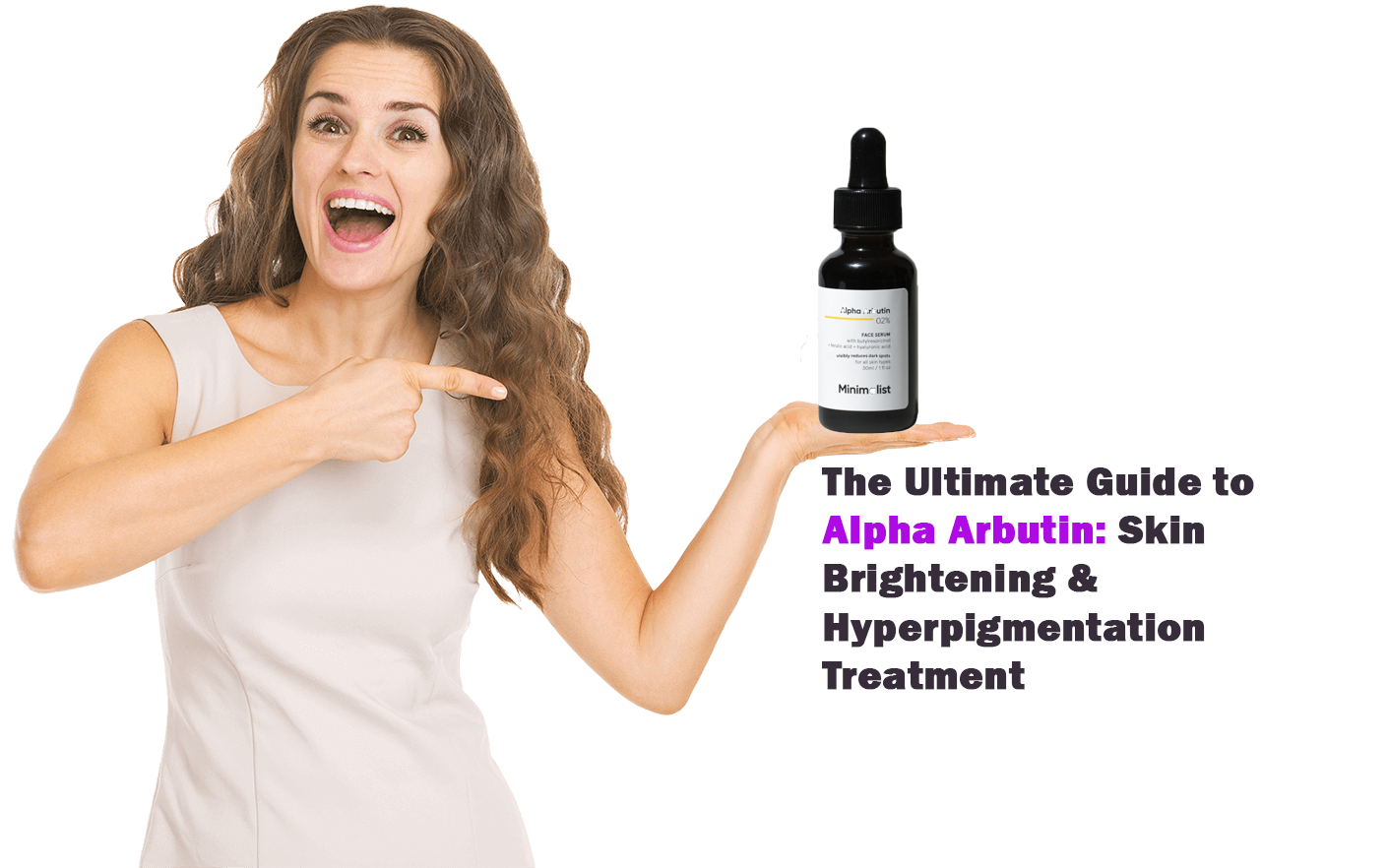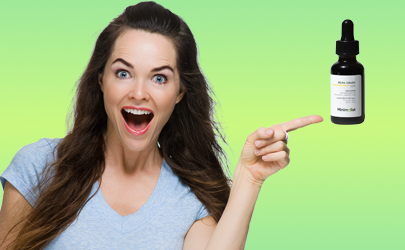
Skin Brightening & Hyperpigmentation Treatment
Alpha Arbutin is one of the most effective yet gentle skin-brightening ingredients, praised for fading dark spots without irritation. But how does it compare to other brighteners like vitamin C or hydroquinone? And how should you use it for best results?
In this blog, we’ll explore:
- What alpha arbutin is and how it works
- Key benefits for hyperpigmentation & acne scars
- Who should use it (and who should avoid it)
- How to layer it with other actives
- What to look for in alpha arbutin products
- Natural alternatives for skin brightening
1. What Is Alpha Arbutin & How Does It Work?
Alpha Arbutin is a natural derivative of hydroquinone (found in bearberry plants) that inhibits tyrosinase, the enzyme responsible for melanin production.
How It Works in Skin:
- Gradually fades dark spots (melasma, sun spots, post-acne marks).
- Gentler than hydroquinone (no risk of ochronosis).
- More stable than vitamin C (doesn’t oxidize easily).
- Works for all skin tones (unlike some acids that risk PIH).
Comparison to Other Brighteners:
| Ingredients | Mechanisam | Strengths | Weaknesses |
|---|---|---|---|
| Alpha Arbutin | Tyrosinase inhibitor | Gentle, stable, no rebound pigmentation | Slower results (6–12 weeks) |
| Vitamin C | Antioxidant + tyrosinase inhibitor | Brightens, boosts collagen | Oxidizes quickly, can irritate |
| Hydroquinone | Tyrosinase blocker | Fastest results (4–8 weeks) | Risk of ochronosis, not for long-term use |
| Niacinamide | Melanosome transfer blocker | Anti-inflammatory, hydrating | Mild brightening effect |
2. Key Benefits of Alpha Arbutin
- Melasma, sun spots, acne scars fade gradually.
- Works well for post-inflammatory hyperpigmentation (PIH).
✔ Fades Hyperpigmentation
- Unlike hydroquinone or high-strength acids, it rarely causes redness or peeling.
✔ Even Skin Tone Without Irritation
- No risk of rebound pigmentation (unlike hydroquinone).
✔ Safe for Long-Term Use
✔ Works for All Skin Types
3. Who Should Use Alpha Arbutin?
- Dark spots from acne, sun damage, or hormones
- Those who can’t tolerate hydroquinone or vitamin C
- Sensitive skin looking for a gentle brightener
- All skin tones (including Fitzpatrick IV–VI)
✅ Best For:
- Very dry skin (pair with hydrating ingredients).
- Those expecting overnight results (takes 6–12 weeks).
⚠️ May Not Be Ideal For:
4. How to Use Alpha Arbutin for Best Results
- 1–2% is ideal (higher % doesn’t always mean better).
✔ Concentration Matters:
- Cleanse skin first.
- Toner (optional)
- Alpha Arbutin Serum (apply to dark spots or full face)
- Moisturizer
- SPF (AM)
✔ Application Tips:
- Vitamin C (boosts brightening effects).
- Niacinamide (reduces inflammation + enhances results).
- Hyaluronic Acid (adds hydration).
✔ Perfect Pairings:
- High-strength acids (can reduce efficacy).
- Directly with copper peptides (may destabilize it).
❌ Avoid Mixing With:
5. Choosing the Best Alpha Arbutin Product
- 1–2% concentration (most effective range)
- Combined with hyaluronic acid or niacinamide for extra benefits.
- Airless pump or opaque bottle (light and air degrade it).
✔ What to Look For:
| Format | Best For |
|---|---|
| Serums | Highest potency, targeted treatment |
| Moisturizers | Gentle, daily maintenance |
| Toners | Lightweight, layered hydration |
6. Natural Alternatives to Alpha Arbutin
If you prefer plant-based options, try:
- Kojic acid (mushroom-derived, brightens but can be irritating).
- Licorice root extract (anti-inflammatory, mild brightening).
- Mulberry extract (natural tyrosinase inhibitor).
7. How Long Until You See Results?
- 4–6 weeks: Initial lightening of spots.
- 8–12 weeks: Significant fading.
- Must be consistent! (Use daily + always wear SPF.)
Disclosure: As an Amazon Associate, We earn from qualifying purchases. Product prices and availability are accurate as of the date/time indicated and are subject to change.
Glycolic Acid
Azelaic Acid
LEAVE A REPLY
Your email address will not be published. Required fields are marked *
Fast Delivery
Across West & East India
safe payment
100% Secure Payment
Online Discount
Add Multi-buy Discount
Help Center
Dedicated 24/7 Support
Curated items
From Handpicked Sellers





LEAVE A COMMENTs
Kartika
"Finally a brightener that doesn’t burn! My rosacea-prone skin loves this."
Denny Ultan
"How long until I see results? It’s been 4 weeks and my spots look the same..."
Jenny John
"Any good clean beauty brands with alpha arbutin? No synthetic fragrances please!"